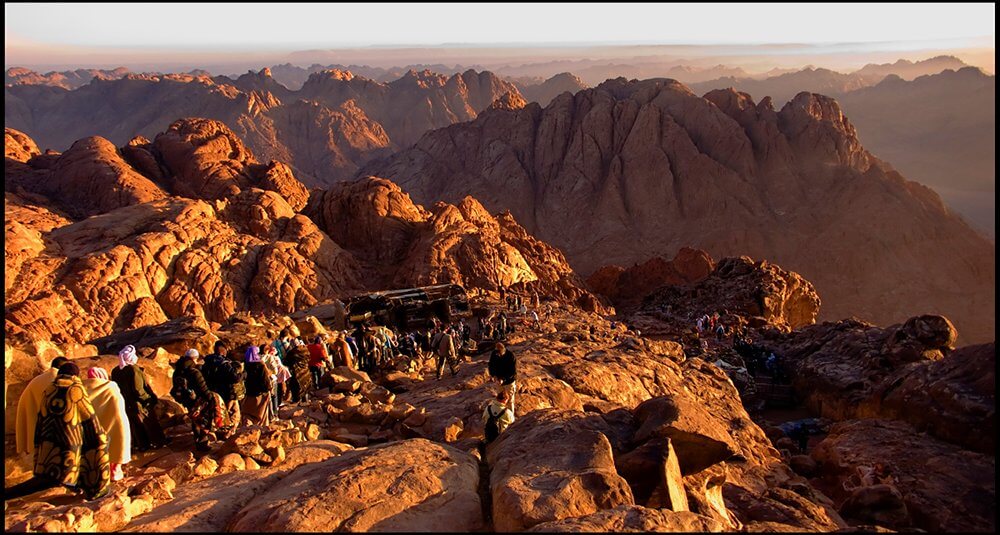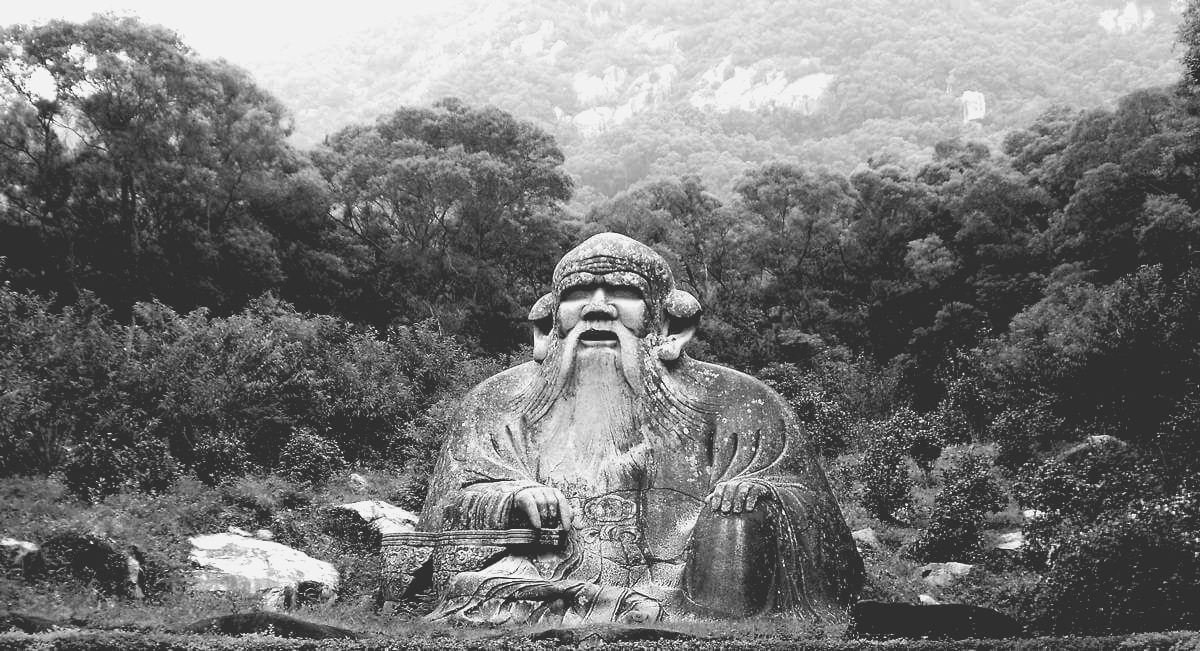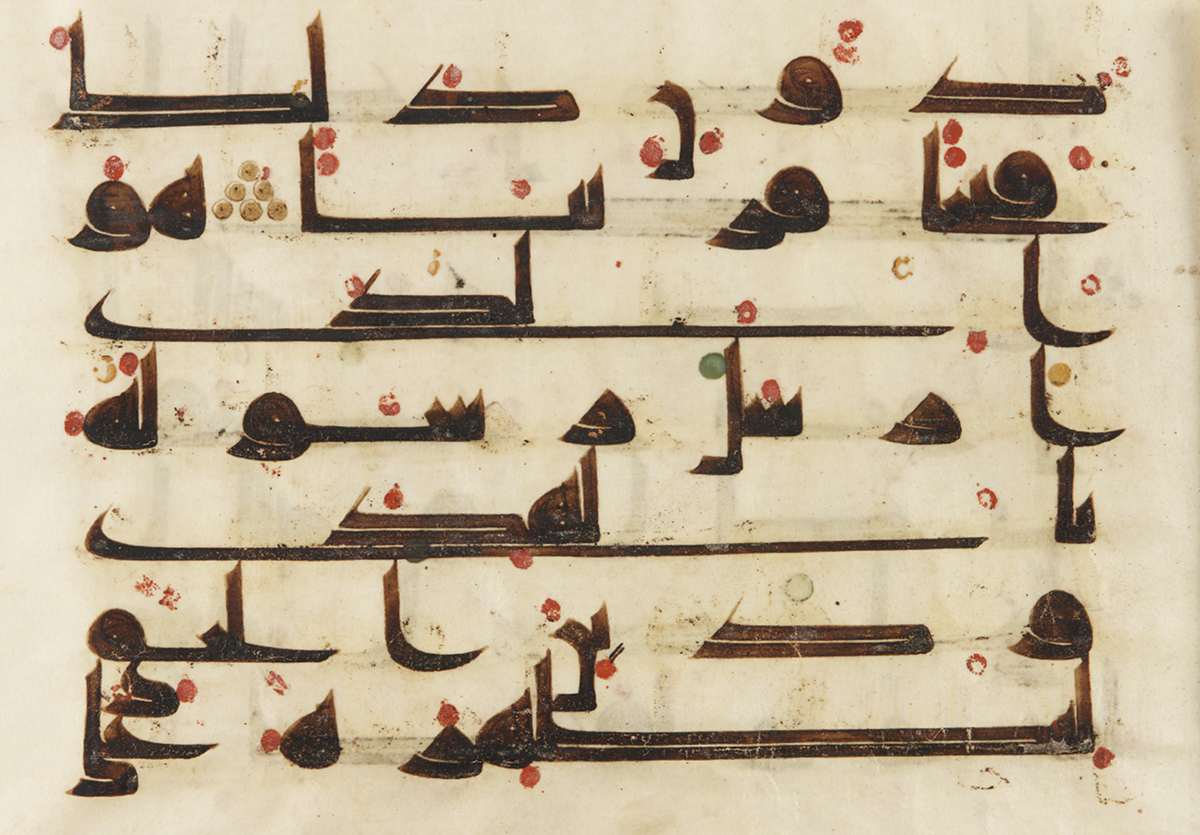The world has been blessed with powerful messages from prophets of the past.
Five of these prophets have a present-day influence on billions of people: Moses, Laozi, Buddha, Jesus, and Muhammad. These five men were the impetus for Judaism, Taoism, Confucianism, Buddhism, Christianity, and Islam. Those religions represent almost 6 billion of the 7.6 billion people on the planet. Given those numbers, it seems appropriate to discuss who they were and what they were about. Don’t worry, I won’t forget to comment on the role that women played in their lives and why we need to amplify women’s voices as much or more than men’s.

First Prophet: The first person we know about from religious and historical sources is Moses, the most important prophet in Judaism. After the Ten Plagues, Moses led the exodus of the Israelites out of Egypt and across the Red Sea, after which they gathered at Mount Sinai where, according to Jewish legend, he received the Ten Commandments. According to the Book of Exodus, Moses was born during a time when his people were enslaved by the Egyptian Pharaoh—about 3,500 years ago or 1500 BCE, although estimates vary. After 40 years of wandering in the dessert with his people, he died in Mount Nebo before reaching the promised land. He was known as being a completely humble and responsible leader. He is honored as a law-giver, a leader, and the author of the Torah, the most revered section of the Hebrew Bible. To me, Moses stands out as a leader who stood up for the purpose of freedom.

Second Prophet: Lao Tzu or Laozi, existed in the 6th century BCE in China and was the founder of Taoism. He was thought to be a contemporary of Confucius. The origin and life of Laozi is extremely ambiguous and very little is known about his life. He preached the essence of nature and emphasized the importance of simplicity, spontaneity, and detachment from desires. Taoism believes in the “One” which is a nameless and formless Source and Force as well as the “right path” referred to as the flow of the Universe. Laozi’s teachings have been handed down through centuries and today his followers span the world. There is no question that the Tao Te Ching is a major source of guidance and wisdom for hundreds of millions of people. Like Moses, Laozi was known for being completely humble. And according to legend, Laozi lived an extremely solitary and simple life with no need for titles or adoration. Although it is futile to try to capture the essence of Taoism with one word, what resonates with me, after reading the Tao Te Ching several times and editing Luke Chan’s wonderful translation in his book, The Eight Secrets of the Tao Te Ching, is Laozi’s purpose of experiencing harmony with the Universe.

Third Prophet: Scholars estimate that Siddhartha Gautama, the Buddha, lived between 480 BCE and 400 BCE. He is believed to have lived and taught mostly in India. Buddha taught the “Middle Way” between sensual indulgence and severe asceticism. He is recognized as an enlightened teacher who helped us end suffering. Various writings attributed to him were passed down by oral tradition and were recounted in writing 400 years later. Raised as a prince, Buddha married and had a child. At the age of 29, however, he decided he would give up his princely comforts and seek enlightenment. After six years of searching and intense meditation, he finally sat down under a Bodhi tree and resolved not to leave until he attained peace of mind. As he meditated deeply, he finally received enlightenment and became the Buddha. He was 35. For the next 45 years, he preached four truths: Life is suffering, desire is the cause of suffering, suffering ends with the destruction of desire, and desire is destroyed by right living. To me, Buddha stands out as a leader and teacher who stood up (and sat down) for the purpose of compassion.

Fourth Prophet: Jesus is believed to have been born about 4 BCE and lived a short 33 years. He was a Jewish preacher and became the central figure in Christianity. Most scholars agree that Jesus existed historically. He was born and raised in Nazareth and probably lived his early years as an illiterate carpenter. According to the Gospel of Mark, Jesus fasted 40 days and nights in the Judean Desert to cleanse his soul and receive transmissions from God. After preaching his message, he was arrested and tried by Jewish religious authorities, turned over to the Roman government, and was crucified on the order of Pontius Pilate. Jesus performed healing, taught parables, and debated fellow Jews on how best to follow God. 60-100 years after his death, his teachings were recorded in the Gospels of Matthew, Mark, Luke, and John. In Islam, Jesus is considered one of God’s important prophets and the Messiah. They do not believe he was the son of God. Judaism rejects the belief that Jesus was the awaited Messiah. To me, Jesus stands out as a leader and teacher who stood up for the purpose of love.

Fifth Prophet: Muhammad was born in 570 CE in Mecca and died in 632 CE in Medina. He is the prophet and founder of Islam. According to Islamic doctrine, he was sent to confirm the essential teaching of monotheism preached previously by Moses, Jesus, and other prophets. Muhammad united present day Saudi Arabia into a single Muslim territory and ensured that his teachings and practices formed the basis of Islamic religious belief. Muhammad was orphaned at an early age and was raised by his uncle. He periodically secluded himself in a mountain cave for several nights of prayer. At age 25, Muhammad wed his wealthy employer, a 40-year old merchant Kadija. This marriage was happy and monogamous. Muhammad relied on Khadija until her death 25 years later. At age 40, Muhammad reported having his first revelation and started preaching them publicly. These revelations are now captured in the Quran. After experiencing hostility to his teaching from Mecca tribes, he migrated to Medina in 622. In 629, Muhammad assembled an army and conquered Mecca thus consolidating and unifying Saudi Arabia under Muslim rule. After his first wife died, Muhammad married Aisha who turned out to be extremely scholarly and inquisitive. Her contribution to spreading Muhammad’s message was extraordinary, and she served the Muslim community for 44 years after his death. To me, Muhammad stands out as a leader who stood up for the purpose of peace.
A few things strike me as I review the lives of these five prophets and reflect on the range of implications of their teachings.
First, they all experienced periods of solitude in which they reflected and contemplated the meaning and purpose of life.
Moses wandered in the desert for 40 years. Laozi reportedly lived alone in a humble shack most of his life. Buddha sought enlightenment in the forest for six years. Jesus fasted for 40 days and nights in the desert. And Muhammad spent weeks meditating in a mountain cave. These periods of reflection, contemplation, and isolation somehow enabled them to connect to Sources larger than themselves.

Second, all of these prophets were known for their humility and humbleness.
Moses was more focused on responsibility than on recognition. Laozi only wrote the Tao Te Ching after he was begged to do so. He had no aspirations to be a great author. Buddha left all the elitist trappings of his princely life to seek the truth with nothing but rags. Jesus did not aspire to be a king of the Jews. He lived simply, courageously delivered his message, and washed his disciples’ feet. Muhammad retreated often to his cave and performed household chores when he was at home. For me, the greatest leaders are humble and are more interested in serving others than serving themselves. They are more likely to be self-effacing than self-absorbed, narcissistic, or arrogant.
Third, all of these men were helped in numerous ways by the women in their lives.
On several occasions, Moses would have been killed if it had not been for the courage, wisdom, and enterprise of several women.
The Tao Te Ching is sometimes referred to as the oldest feminist book. It urges rulers to “embrace the feminine way.”

Buddha first ordained women as nuns five years after his enlightenment and taught that husbands should respect their wives—both revolutionary concepts at the time. Jesus travelled with Mary Magdalene as one of his followers. She played a prominent role in his life and teaching. Within the Gospels she is named at least 12 times, more than most of the apostles. Without his first wife, Kadija, Muhammad may not have found the confidence to believe he was the recipient of messages from Allah. After Kadija’s death, Muhammad went on to marry 12 other women, many of whom he took as wives in acts of compassion or mercy. For me, it is critical that men and women both embrace their masculine and feminine ways. We can only be fully human and lead effectively if we fully develop the responsive and initiative dimensions of our lives.
So, if we look at the common characteristic of these five prophets, they were all contemplative and reflective, they were all humble and generous, they were all responsive and initiative, and they all embraced and appreciated what we now refer to as the divine feminine. I believe when we deny the divine mystery of the feminine, we also deny something fundamentally sacred in our lives. Oh, how far our current “leaders” have strayed from those characteristics. Wouldn’t it be wonderful if everyone strove to lead more contemplative, generous, humble, and responsive lives more aligned with the purposes of the prophets?
The questions are: How did we drift so far from the messages these prophets espoused? How were we able to trivialize the messages of freedom, harmony, love, compassion, and peace from the prophets of our past into the convoluted bastardizations of these same concepts that we see today?

In his book, 1984, Orwell describes a dystopia in which freedom is slavery and peace is war that resonates strongly our current climate.
In 2017, we are not only seeing Orwellian fictional portrayals becoming reality, we are witnessing little harmony in the divisive politics across the world. We hear more about hate crimes that acts of love. And we deny health care for the poor in the name of compassionate conservatism. How did we get from there to here?
I’m hoping we can all be more respectful to the prophets of the past and align our behaviors behind their powerful purposes. May the dreams and burdens of their hearts be the dreams and burdens of ours.
If you would like to learn more about all of these prophets and more, please read Huston Smith’s book, The World’s Religions. It is an amazing summary of all of these religions and prophets and was the major source for this post.
Also published on Medium.

